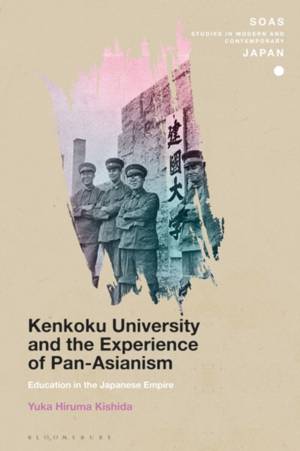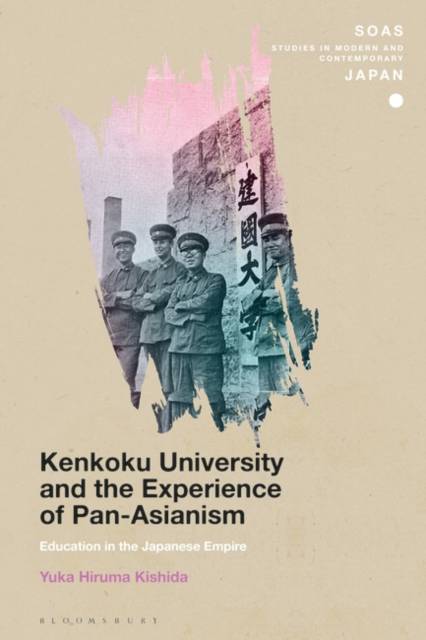
- Retrait gratuit dans votre magasin Club
- 7.000.000 titres dans notre catalogue
- Payer en toute sécurité
- Toujours un magasin près de chez vous
- Retrait gratuit dans votre magasin Club
- 7.000.0000 titres dans notre catalogue
- Payer en toute sécurité
- Toujours un magasin près de chez vous
Kenkoku University and the Experience of Pan-Asianism
Education in the Japanese Empire
Yuka Hiruma Kishida
254,45 €
+ 508 points
Description
Kenkoku University and the Experience of Pan-Asianism makes a fresh contribution to the recent effort to re-examine the Japanese wartime ideology of Pan-Asianism by focusing on the experiences of students at Kenkoku University or "Nation-Building University, +? abbreviated as Kendai (1938-1945). Located in the northeastern provinces of China commonly designated Manchuria, the university proclaimed to realize the goal of minzoku kyowa ("ethnic harmony+?). It recruited students of Japanese, Chinese, Korean, Taiwanese, Mongolian and Russian backgrounds and aimed to foster a generation of leaders for the state of Manchukuo. Distinguishing itself from other colonial schools within the Japanese Empire, Kendai promised ethnic equality to its diverse student body, while at the same time imposing Japanese customs and beliefs on all students.
In this book, Yuka Hiruma Kishida examines not only the theory and rhetoric of Pan-Asianism as an ideal in the service of the Japanese Empire, but more importantly its implementation in the curriculum and the daily lives of students and faculty whose socioeconomic backgrounds were broadly representative of their respective societies. She draws on archival material which reveals dynamic exchanges of ideas about the meaning of Asian unity among the campus community, and documents convergences as well as clashes of competing articulations of Pan-Asianism. Kishida argues that an idealistic and egalitarian conception of Pan-Asianism exercised considerable appeal late into the Second World War, even as mobilization for total war intensified contradictions between ideal and practice.
More than an institutional history, this book makes an important intervention into the historiography on pan-Asianism and Japanese imperialism.
In this book, Yuka Hiruma Kishida examines not only the theory and rhetoric of Pan-Asianism as an ideal in the service of the Japanese Empire, but more importantly its implementation in the curriculum and the daily lives of students and faculty whose socioeconomic backgrounds were broadly representative of their respective societies. She draws on archival material which reveals dynamic exchanges of ideas about the meaning of Asian unity among the campus community, and documents convergences as well as clashes of competing articulations of Pan-Asianism. Kishida argues that an idealistic and egalitarian conception of Pan-Asianism exercised considerable appeal late into the Second World War, even as mobilization for total war intensified contradictions between ideal and practice.
More than an institutional history, this book makes an important intervention into the historiography on pan-Asianism and Japanese imperialism.
Spécifications
Parties prenantes
- Auteur(s) :
- Editeur:
Contenu
- Nombre de pages :
- 288
- Langue:
- Anglais
- Collection :
Caractéristiques
- EAN:
- 9781350057852
- Date de parution :
- 03-10-19
- Format:
- Livre relié
- Format numérique:
- Genaaid
- Dimensions :
- 155 mm x 236 mm
- Poids :
- 544 g

Les avis
Nous publions uniquement les avis qui respectent les conditions requises. Consultez nos conditions pour les avis.






